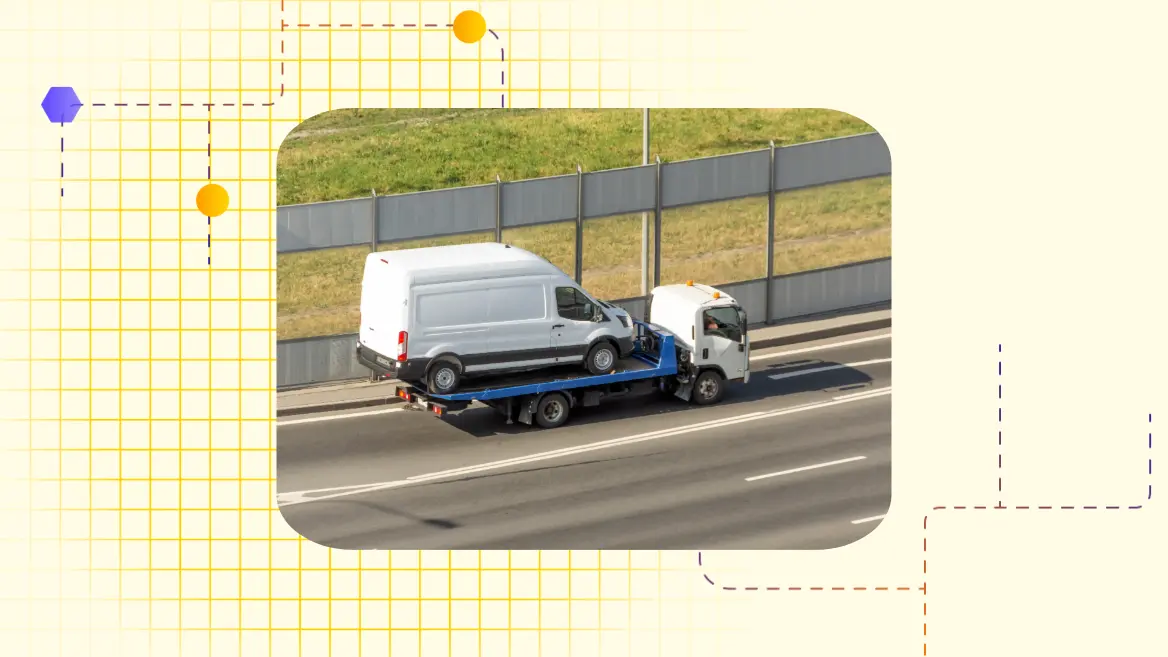Starting a courier business comes with a lot of costs, and buying a brand-new van is too expensive for most couriers just starting out. That’s why buying a second-hand van appeals to many new owner-drivers. A well-maintained used van can be just as reliable as a new one but at a much lower price.
Another big advantage is that a used van has already gone through its biggest drop in value. New vehicles lose a lot of their worth in the first few years, but a second-hand van holds its price better. This makes it a sensible investment, especially when you’re just getting started.
What we’ll cover
What to consider when buying a second-hand van
1. Mileage and condition
Mileage gives a good idea of how much wear and tear a van has seen. But it’s not just about the numbers on the dashboard. A van with high mileage but a solid service record might be a better option than one with low mileage and no history of maintenance.
Check for any signs of heavy use. Look at the tyres, brakes, and suspension. Uneven tyre wear or excessive rust could signal problems down the line.
2. Service history and previous owners
A full-service history tells you how well a van has been looked after. Regular servicing means it’s more likely to be in good shape. Missing or patchy servicing records are always a red flag when buying a second-hand van.
The number of previous owners also matters. A van that’s had several owners in a short time could indicate reliability issues. On the other hand, a van that’s been with one business for years and maintained properly is more likely to be a solid choice.
3. Accident and repair history
Not all damage is easy to spot. Even if a van looks fine on the surface, it could have been in an accident. Run a vehicle history check to see if it’s been involved in any crashes.
Look closely at the bodywork. Mismatched paint, uneven panel gaps, or signs of welding could mean it’s had repairs. While some fixes are fine, poor repair work might cause problems later.
4. MOT and warranty options
When buying a second-hand van, you want to check out the van’s MOT certificate for any advisories. If a van has lots of minor faults flagged, these could end up turning into expensive repairs later down the line.
Some dealerships offer short-term warranties on used vans. While this won’t cover everything, it can give peace of mind if something goes wrong shortly after purchase.
5. Running costs and fuel efficiency
The price you pay when buying a used courier van is just the beginning. Running costs can quickly add up. Fuel economy plays a big role, especially as a courier covering lots of miles each week, at which point it may be worth getting a courier fuel card.
Diesel vans usually offer better efficiency, but modern petrol vans are improving, and good electric vans are also becoming an option on the second-hand market.
Don’t forget about road tax, courier insurance, and maintenance. Some models are cheaper to repair and have more affordable parts, making them a better choice for a courier business.
6. Payload and space requirements
Think about the type of work you’ll be doing. A small van might be great for city deliveries but won’t work if you need to transport large loads. A bigger van has more space but could be harder to park and cost more to run.
Check the payload capacity to make sure the van can handle the weight of your typical deliveries. Overloading a van can cause mechanical issues and might even be unsafe.
Choosing a used van – recommended models for couriers
Small courier vans (best for city deliveries)
If you’re mostly working in urban areas, a small van is ideal. They’re easier to park and cheaper to run than larger models.
- Ford Transit Connect – A reliable choice with good fuel economy and a spacious cargo area for a small van.
- Volkswagen Caddy – Well-built, easy to drive, and holds its value well.
Medium courier vans (versatile for most courier work)
Medium vans offer a balance between space and running costs. They suit a wide range of delivery jobs, from parcels to bulkier loads.
- Ford Transit Custom – One of the best-selling vans in the UK. Known for its durability, decent fuel economy, and comfortable cab.
- Vauxhall Vivaro – A practical van with a good mix of storage space and efficiency. It’s also cheaper to run than some rivals.
Large courier vans (best for high-volume deliveries)
For those handling large loads or long-distance jobs, a bigger van is a better choice. These models offer plenty of space and strong engines built for heavy work.
- Mercedes-Benz Sprinter – A favourite among couriers for its reliability and high payload capacity.
- Renault Master – Offers a spacious cargo area and solid build quality, making it a good option for demanding deliveries.
Our top tips for buying a second-hand van
- Always take a test drive. A van might look good on paper, but how it feels on the road matters just as much.
- Check for any unusual noises, sluggish acceleration, or stiff steering. These could point to underlying problems.
- If you’re unsure about a van’s condition, get a professional inspection. A mechanic can spot issues that might not be obvious.
Buying a second-hand van can be a great starting point for a courier business. By checking the history, condition, and running costs, you can find a reliable courier van that suits your needs without stretching your budget.
Second-hand van FAQs
What should I check before buying a used van?
Before buying a van, check the mileage, service history, MOT status, accident records, and overall condition. A test drive can also help spot any hidden issues.
Which van is best for delivery drivers?
The best van depends on your needs. The Ford Transit Custom is a great all-rounder, while the Volkswagen Caddy suits city driving. For larger loads, consider the Mercedes-Benz Sprinter.
Is it cheaper to buy a second-hand van from a dealer or private seller?
Buying a van from a dealer may cost more, but you often get a warranty and legal protection. Private sellers can offer lower prices, but you’ll need to check the van’s history carefully.
How many miles is too much for a used van?
It depends on the model and maintenance. A well-serviced diesel van can run past 150,000 miles, but always check the service records and look for signs of wear.




